Kibera, in Kenya’s capital Nairobi, might be the largest urban slum in Africa, but it’s home to a group of dynamic young activists, who are spreading the importance of human rights, through action-packed theatre, poetry and dance. Wasanii Sanaa, a youth organization, and Amnesty International are tackling poverty, drug addiction and child trafficking by teaching the community why it’s important to know and claim their rights. Led by 27-year-old human rights defender and part-time paralegal Vincent, education has never been so entertaining…
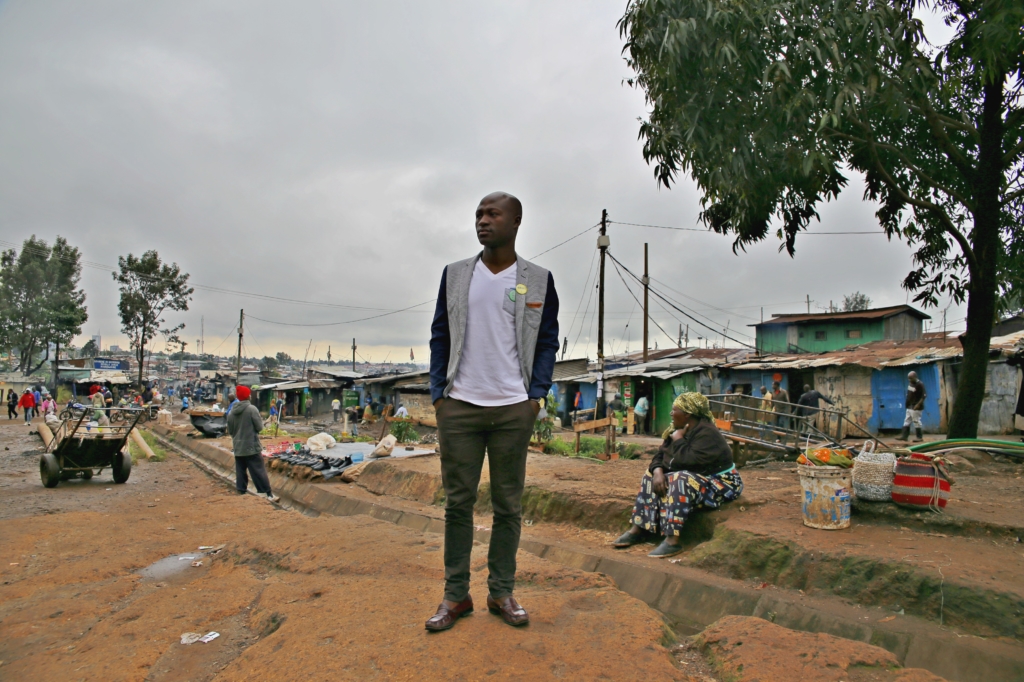
“Poverty and unemployment is a huge problem in Kibera,” said Vincent. “Young people take drugs from an early age, gender-based violence is rife and police brutality is at an all-time high.” Many of his friends dropped out of school, but he was determined to take a different path. “I developed a passion for the arts at school and after I met Charles Nyukuri, Human Rights Education and Activism Campaign Manager at Amnesty International Kenya, I knew I wanted to be a champion for human rights. He mentored me and taught me how to stand up and speak out for people’s rights.”
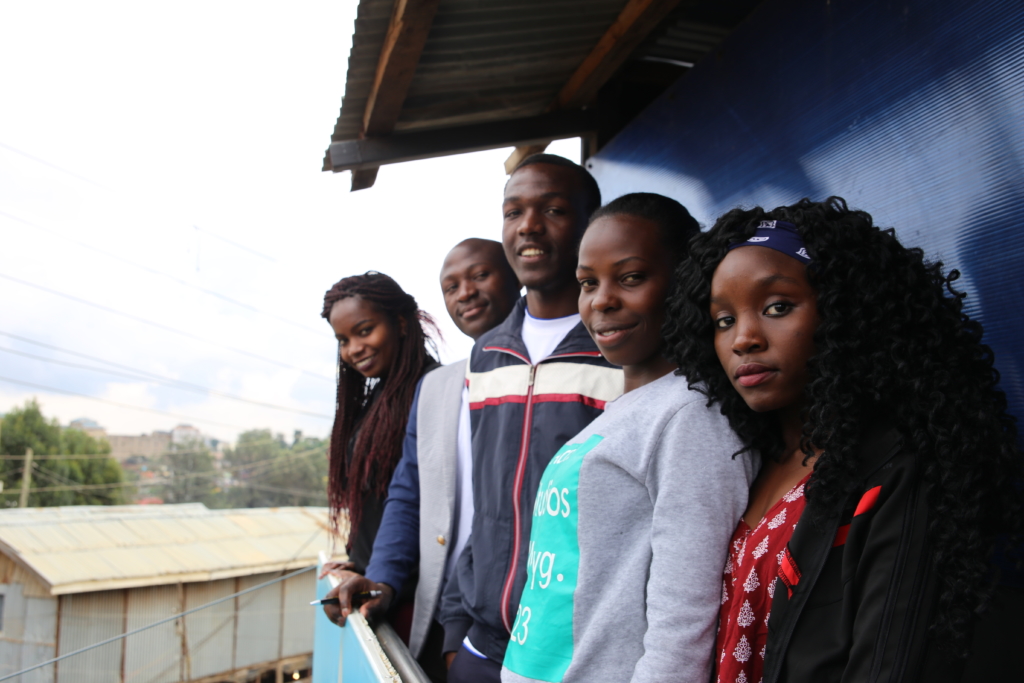
After Vincent left school, he decided to combine his performance skills with his passion for human rights and set up his own youth organization, Wasanii Sanaa, under the mentorship of Amnesty International. Even though he had no money, he printed posters, found a space in a local organisation and held auditions. “We started rehearsing poems, traditional dances and short skits in a bid to educate Kibera about human rights issues relevant at a local level Our group has grown from four people to 25!”
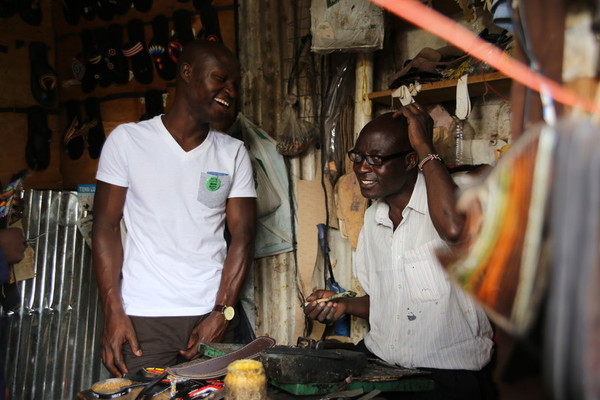
Vincent’s parents, Leonard and Eunice, had reservations, questioning whether art would pay, but they can see the difference he’s making. “I am proud of Vincent’s work – he has changed the lives of other young people and he has helped reform so many,” said Leonard, who makes a living making shoes. “Some of the young people he works with were involved in criminal activities, but now they understand human rights issues and they’ve changed.”
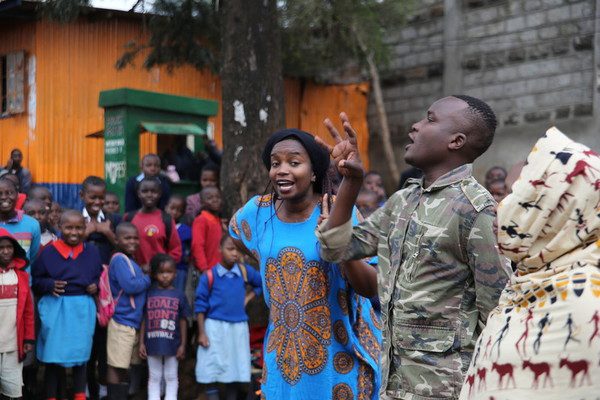
Julian (left), 24, is a member of Wasanii Sanaa. Like many others, she was inspired by Vincent and was eager to become part of the group. She earns a wage, while performing in public has helped her grow in in confidence. “I enjoy educating people about human rights, but in Kibera, you can’t give information without entertainment. That’s why we put the two together. I didn’t know how to do traditional dances, poetry or acting, but now I enjoy performing.”
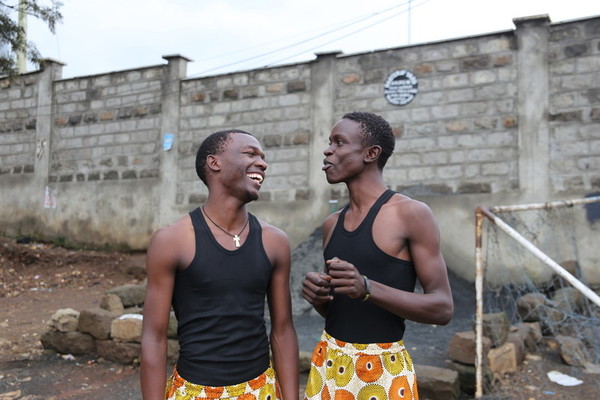
Every group needs an energetic MC. Step forward John (left), 24, who firmly believes Kibera is a place of hope. “I am aware of the issues that exist in the slums, I grew up here, but the fear of them remaining encouraged me to speak out. There’s great potential here. I have been to primary and secondary school here and now I am taking electrical engineering at university.”
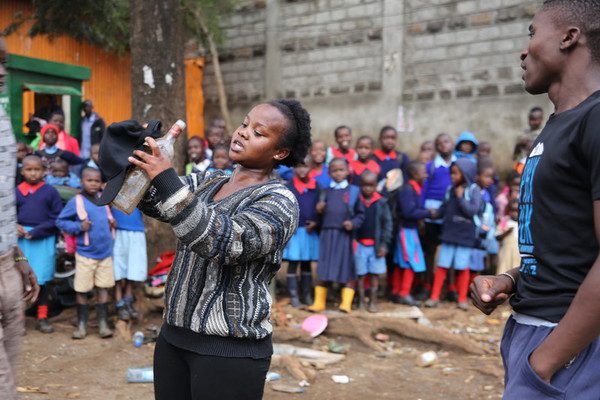
From police brutality and drug abuse, to gender-based violence, the young master of ceremony (MC) fuses hard-hitting content with humour to make sure performances have maximum impact. “If our event focuses on police reforms, I talk about our rights. If I want to tackle violence, I back it up with statistics. I do research before my gigs, as I want to have enough content to share and inspire people. The truth comes out when we speak out – that’s the only way people will listen and recognize our potential.”
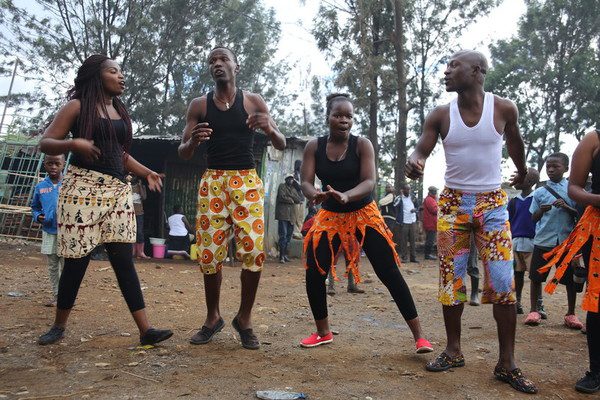
These high energy educational performances ensure Julian, Vincent and John are role models in Kibera. “I’ve learnt how to have an impact on people,” said Julian. “We perform in schools, in the community, so I encounter different people every day. I am trusted as people can see what I am doing. Parents often ask if their children can join our group.”
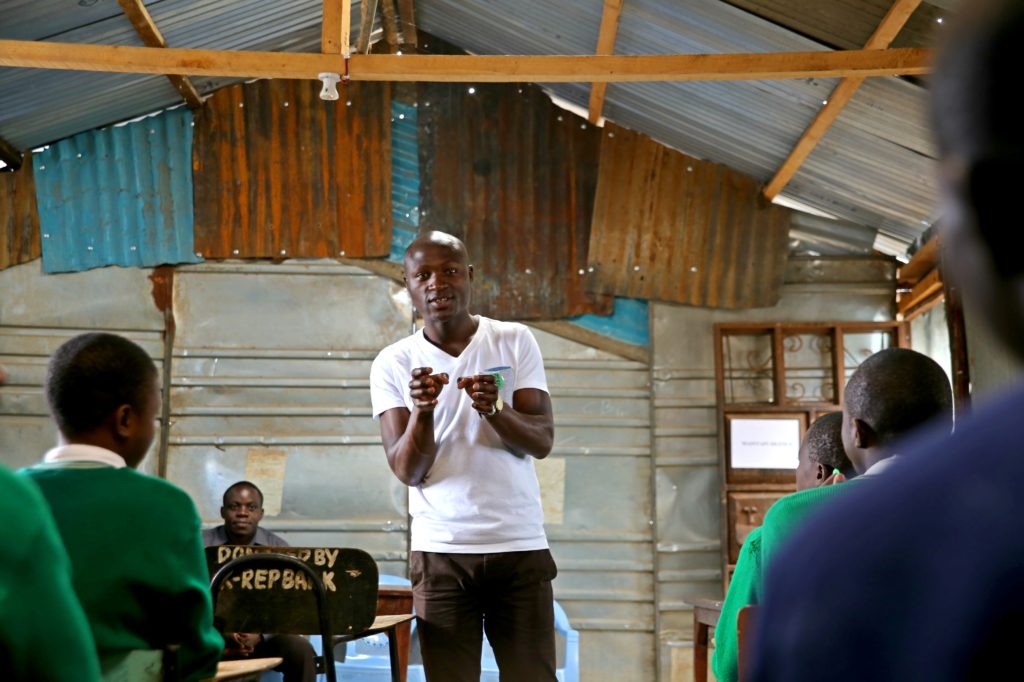
Wasanii Sanaa, in partnership with Amnesty International, also host Human Rights Clubs in schools, providing a safe space for young people to learn about their rights and how to claim them. “Human Rights Club ensures young people have the chance to enjoy a better life,” said Charles Nyukuri. “I’ve seen so many children grow in confidence, including Vincent. He learnt a lot about human rights with the support of Amnesty International and it gave him the encouragement to start his own organisation. Other children and young people can now speak freely and share issues in an articulate manner, while many have gone on to university.”
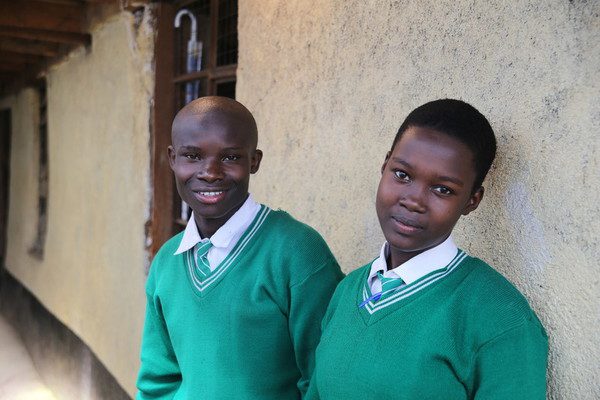
These activities and organisations help demystify human rights, breaking down tough subjects in an understandable way – and it’s certainly working for members Bossvill and Sylvia, both 17. “Human rights club has helped me stay on track,” said Bossvill. “It’s taught me about friendship, how to negotiate and why I must stand up for the truth.”
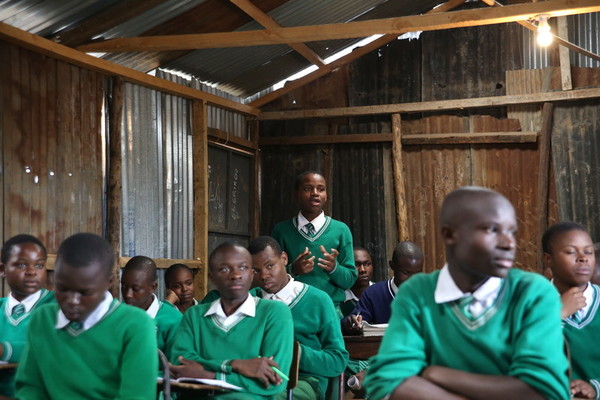
It’s also having an effect across Kibera. “Many children come to Kibera from rural areas. They’re told they will go to school, but many of them ended up working at home, just to earn their stay,” said Sylvia. “Students have been standing up for themselves and using what they’ve learnt to educate the community so they can go back to school.”
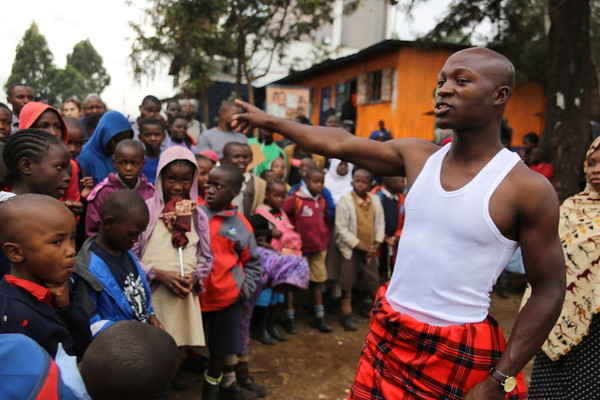
Across Kibera, young people are leading the charge and changing the way the community works, ensuring it is a place of hope. “A human rights defender should not have any limits,” said Vincent. “I’ve faced a lot of challenges as a human rights activist, but people understand what I am trying to do and I am determined to carry on. I want to make a change and empower my community. Living under a rusty roof cannot make your mind rusty.”

